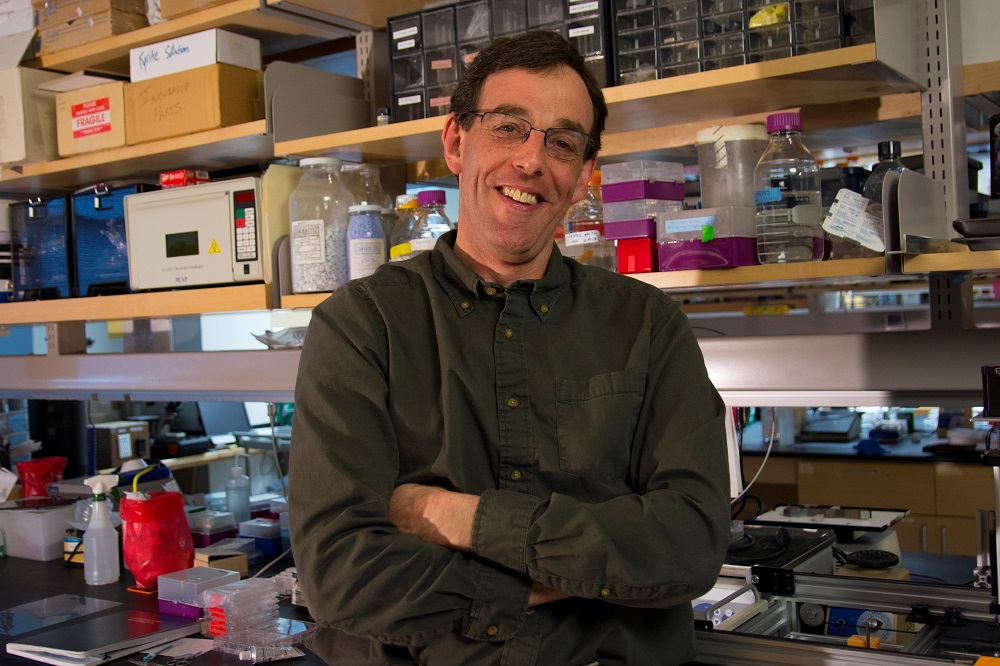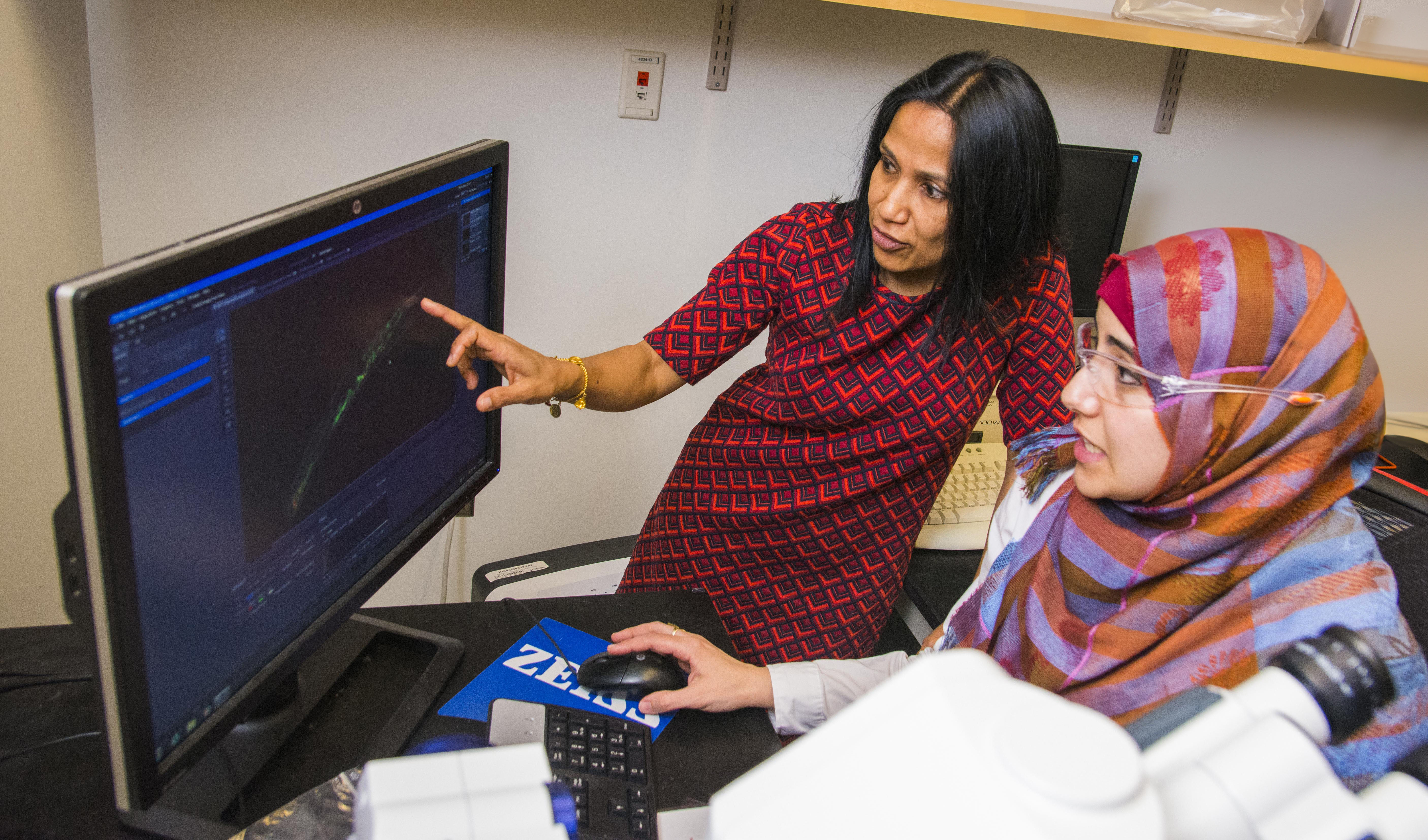WPI’s Bioengineering Institute Symposium Series launches in February, and will feature discussions ranging from how companies, universities, and government can collaborate in healthcare, to improving water quality, and developments in tissue regeneration. BEI focuses on several major technologies that enable scientists, engineers, and clinicians to address tough research challenges with flexibility and imagination.
Worcester, Mass. - The WPI Bioengineering Institute (BEI) will launch the BEI Symposium Series in February 2007 with an event titled New Developments in Biomanufacturing. The series will highlight diverse research topics in the areas of the life sciences and medical devices. The symposia are designed to be of interest to the academic and corporate communities.
In addition to biomanufacturing, the six events in the series will showcase the research of recognized leaders in such fields as regenerative medicine, tissue regeneration, sensors, and water quality. Speakers will be drawn from WPI and from regional, national, and international companies and institutions. The series will include the second annual Biotechnology and Bioengineering Corporate Forum, which will bring together executives of large and small biotech, biopharma, and medical device companies to discuss how their companies interact with academia.
This fall, two Bioengineering Institute research centers each received $1 million in federal funding through a U.S. Senate Defense Appropriations Bill, setting the stage for the university to further its leadership in two key areas of biomedical research. The allocations were for the Center for Untethered Healthcare, which is developing an integrated system of medical sensors, portable ultrasound scanners, and wireless technology to provide more effective medical care for soldiers in the field to improve their odds of surviving battlefield injuries; and the newly founded Center for Neuroprosthetics and BioMEMS, which is developing technology that will make it possible for prosthetic limbs and organs to be controlled by signals from the brain.
The BEI Symposium Series calendar is as follows:
February 20, 2007 - "New Developments in Biomanufacturing"
Advances in biomanufacturing directly impact overall product cost and quality. Incorporating recent advances in processing techniques in the manufacturing environment is a constant challenge to biologists and engineers. The WPI symposium on "New Developments in Biomanufacturing" will address some of the recent developments in a broad range of areas within the biomanufacturing field including upstream developments in bioreactors, improved filtration systems for enhanced recovery, and chromatographic recovery systems targeted for improved FDA compliance.
March 22, 2007 - "Biotechnology and Bioengineering Corporate Forum"
The forum will provide wide-ranging perspectives on the current state of the industry and its future, and how companies, universities, and government can work together to develop new products to meet the nation’s healthcare needs. Showcased will be the activities of local and regional biotechnology and medical device companies as well as the research, development and commercialization efforts of WPI’s life sciences departments and the Bioengineering Institute.
April 4, 2007 - "The 2nd Annual WPI/UMass Symposium on Tissue Regeneration"
Presentations will focus on biosciences and engineering technologies at the forefront of wound healing and cardiovascular tissue regeneration.
April 25, 2007 - "Clean Water for the 21st Century: Shaping the Dialogue for the World’s Water Issues"
Experts in the area of water purification and delivery, sustainable development, waste management, and policy development shape the agenda of the contemporary discourse on water purification and global delivery issues.
September 20, 2007 - "Symposium for Regenerative Bioscience and Engineering "
Regenerative Biology is an emerging field within the life sciences and bioengineering disciplines that offers the ability to treat disease and or trauma by replacement of lost tissue. The regeneration of tissue involves a complex interaction between cells and their environment. Chemical, electrical, and mechanical factors are all likely to play a significant role in directing cells to differentiate into desired phenotypes. By integrating principles of engineering with increased knowledge of cell biology, scientists are now beginning to understand how to use one’s own cells or those from other sources to repair damaged tissue. This technology has the potential to restore function to tissues and organs that were once thought of as un-repairable. At the CRBE symposium, world renowned leaders in the field of regenerative biosciences and engineering will describe how they are able to direct the reparative process through the use of cells and engineered biomaterials.
October 24-25, 2007 - "Symposium on Physiological Monitoring "
Nanotechnology and micro-electro-mechanical systems (MEMS) have facilitated the fabrication of minimally invasive and unobtrusive devices for physiological monitoring. In this symposium, research and development of devices with applicability in three areas will be examined; biomarker monitoring for diagnosis and drug compliance, blood glucose monitoring for diabetes management and monitoring of physical parameters such as temperature, pressure and bioelectrical signals.
For more information on the BEI Symposium Series visit the BEI web site.

